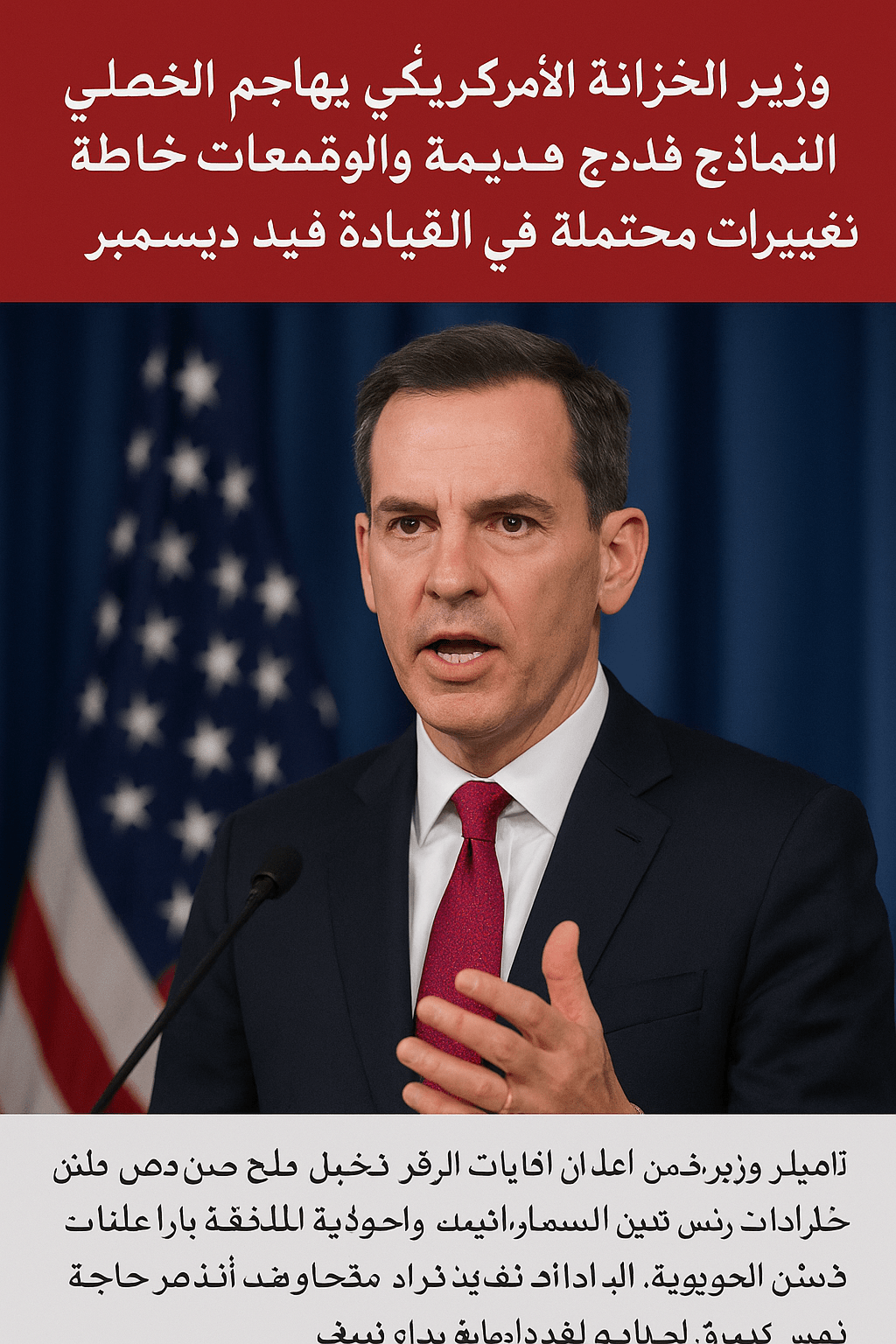After the Federal Reserve announced a 25 basis point rate cut, U.S. Treasury Secretary Scott Basanet launched a sharp attack on the central bank, questioning the timing of the decision and the credibility of the forecasting models used by the Fed.
Basanet said that the cut is a 'step in the right direction,' but he added that the Fed is 'stuck in the past,' emphasizing that its economic models no longer reflect reality and that its forecasts for growth and inflation have been consistently wrong.
The minister revealed that a second round of internal interviews will be held in December, indicating that preparations to choose a successor to Jerome Powell have already begun, possibly before Christmas, meaning that the transition in the leadership of the Federal Reserve has quietly started.
Basanet's criticisms focus on three main points:
The slow pace of interest rate cuts and the Fed's delay in responding to economic changes.
Internal divisions and conflicting data that led to a deadlock in policies.
Reliance on outdated economic models that cannot capture real-time changes in inflation and the labor market.
Basanet called for the appointment of new leadership "bold enough to break the old framework" and to rebuild the decision-making mechanism from scratch.
In contrast, Jerome Powell confirmed during the press conference after the meeting his cautious stance, pointing to "internal disagreements" within the Fed and that the ongoing government shutdown disrupts access to vital economic data, which may complicate any new interest rate cut in December.
Basanet's remarks heightened tensions and clearly showed that the Trump administration is actively working to redirect the policies of the U.S. central bank.
